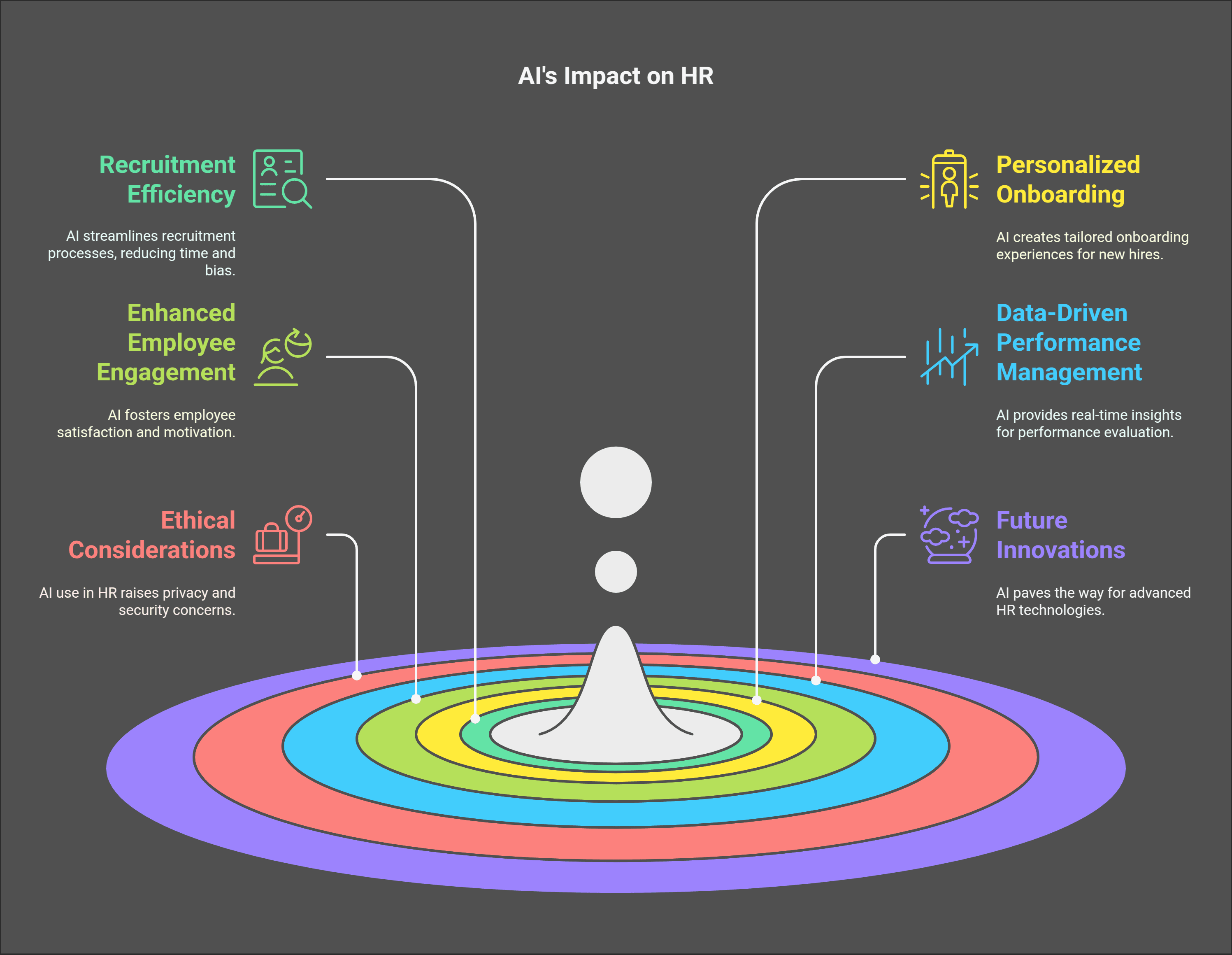How AI is Revolutionizing HR: The Future of Human Resources
In today’s fast-paced business world, Human Resources (HR) is no longer just about hiring and payroll. It’s about creating a workplace that thrives on innovation, efficiency, and employee satisfaction. Enter Artificial Intelligence (AI)—a game-changer that’s transforming HR processes and redefining how companies manage their most valuable asset: their people.
From recruitment to employee engagement, AI is making HR smarter, faster, and more human-centric. But how exactly is AI reshaping HR, and what does this mean for businesses and employees alike? Let’s dive in.
1. AI in Recruitment: Finding the Right Talent Faster
Recruitment is one of the most time-consuming tasks for HR professionals. Sifting through resumes, scheduling interviews, and assessing candidates can take weeks—or even months. But with AI, the process is becoming faster, more accurate, and less biased.
How AI is Changing Recruitment:
- Resume Screening: AI-powered tools can analyze thousands of resumes in seconds, identifying the best candidates based on skills, experience, and cultural fit.
- Chatbots for Candidate Engagement: AI chatbots can answer candidate questions, schedule interviews, and even provide feedback, ensuring a seamless candidate experience.
- Bias Reduction: By focusing on data rather than gut feelings, AI helps reduce unconscious bias in hiring, promoting diversity and inclusion.
Example: Companies like Unilever use AI to conduct initial video interviews, analyzing candidates’ facial expressions, tone, and word choice to assess their suitability for the role.
Learn more about how HR outsourcing can streamline your recruitment process.
2. Employee Onboarding: A Personalized Welcome
First impressions matter, especially when it comes to onboarding new employees. AI can create a personalized onboarding experience that makes new hires feel valued and prepared from day one.
AI-Driven Onboarding Benefits:
- Customized Training Programs: AI can analyze an employee’s role and create tailored training modules to help them get up to speed quickly.
- Automated Paperwork: Say goodbye to endless forms! AI can handle documentation, tax forms, and compliance requirements effortlessly.
- Virtual Assistants: AI-powered virtual assistants can guide new hires through company policies, answer questions, and even recommend colleagues to connect with.
Pro Tip: A smooth onboarding process can boost employee retention by 82%. AI ensures that every new hire feels supported and engaged from the start.
3. Employee Engagement: Keeping Your Team Motivated
Happy employees are productive employees. But keeping a diverse workforce engaged can be challenging. AI is stepping in to help HR teams understand employee needs and foster a positive work environment.
AI for Employee Engagement:
- Sentiment Analysis: AI tools can analyze employee feedback, surveys, and even emails to gauge morale and identify potential issues before they escalate.
- Personalized Career Development: AI can recommend training programs, mentorship opportunities, and career paths based on an employee’s skills and goals.
- Recognition Programs: AI can track employee achievements and automatically suggest rewards or recognition, boosting motivation and loyalty.
Example: Companies like Google use AI to analyze employee feedback and predict turnover risks, allowing HR to take proactive steps to retain top talent.
Discover how business development services can complement your HR strategies.
4. Performance Management: Data-Driven Insights
Traditional performance reviews are often subjective and infrequent. AI is changing that by providing real-time, data-driven insights into employee performance.
AI in Performance Management:
- Continuous Feedback: AI tools can monitor employee performance and provide instant feedback, helping employees improve on the go.
- Goal Tracking: AI can track progress toward individual and team goals, ensuring alignment with company objectives.
- Predictive Analytics: By analyzing performance data, AI can predict future outcomes, such as which employees are likely to excel or need additional support.
Did You Know? Companies that use AI for performance management see a 30% increase in productivity and employee satisfaction.
5. The Ethical Side of AI in HR
While AI offers incredible benefits, it’s not without challenges. Privacy concerns, data security, and the risk of over-reliance on technology are valid issues that HR professionals must address.
Best Practices for Ethical AI Use:
- Transparency: Be clear about how AI is used in HR processes and ensure employees understand its role.
- Data Security: Protect employee data with robust cybersecurity measures and comply with regulations like GDPR.
- Human Oversight: Use AI as a tool to support HR decisions, not replace human judgment entirely.
Quote: “AI is a powerful tool, but it’s only as good as the people who use it. HR professionals must strike a balance between technology and the human touch.” – HR Expert
Explore our IT and tech services to ensure your AI tools are secure and efficient.
6. The Future of HR: AI and Beyond
The integration of AI into HR is just the beginning. As technology evolves, we can expect even more innovative solutions, such as:
- AI-Powered Workforce Planning: Predicting future talent needs and skill gaps.
- Virtual Reality (VR) Training: Immersive training experiences powered by AI.
- Enhanced Employee Well-Being: AI tools that monitor mental health and recommend wellness programs.
The future of HR is not about replacing humans with machines—it’s about empowering HR professionals to focus on what they do best: building relationships and fostering a positive workplace culture.
Learn how digital marketing services can help you attract top talent in the AI era.
Conclusion: Embrace the AI Revolution in HR
AI is no longer a futuristic concept—it’s here, and it’s transforming HR in ways we never imagined. By automating repetitive tasks, providing data-driven insights, and enhancing employee experiences, AI is helping HR professionals work smarter, not harder.
For businesses, adopting AI in HR means staying competitive in a rapidly changing world. For employees, it means a more personalized, engaging, and fulfilling work experience. The question isn’t whether AI will shape the future of HR—it’s how quickly you can embrace it.
Ready to transform your HR processes? Contact us today to learn more about our innovative solutions.

